Tenant Fraud is Rising: What Can Landlords Do?
 In just a matter of weeks, the pandemic has erased almost all of the gains the job market made since the last recession in 2008. Looking at the past, the effects of the 2008 housing crash permeated the economy for years after. Instances of tenant fraud increased, as many rental applicants tried to hide poor credit scores, evictions, and low income to qualify for rentals. Today, we see a similar pattern emerging. Even if things go back to “normal”, US consumers may not experience financial stability for a while. This means your screening and leasing strategies may need to change for longer than you think.
In just a matter of weeks, the pandemic has erased almost all of the gains the job market made since the last recession in 2008. Looking at the past, the effects of the 2008 housing crash permeated the economy for years after. Instances of tenant fraud increased, as many rental applicants tried to hide poor credit scores, evictions, and low income to qualify for rentals. Today, we see a similar pattern emerging. Even if things go back to “normal”, US consumers may not experience financial stability for a while. This means your screening and leasing strategies may need to change for longer than you think.
Nonpayment of Rent
Although traditionally we look at past behavior to determine future behavior, now we must also consider nonpayment of rent, lower income, or lower credit scores in light of circumstances outside of an applicant’s control.
To put it in perspective, our survey of 1,160 AAOA members found that about 59% of landlords had at least one renter ask for a partial or whole rent reduction in May. Since the pandemic began more people have lost their jobs, but stimulus checks and unemployment benefits have helped to counteract losses temporarily. It remains to be seen whether those benefits will cover what US consumers need while the economy gets back up on its feet.
This puts landlords in a tough spot. How do you make exceptions for tenants without getting taken advantage of? How can you tell which rental applicants are telling the truth and which ones aren’t?
Screening Strategies
Recessions increase tenant fraud, so now is the time to tighten up your screening strategies and add a few new techniques specifically for the pandemic. It’s okay if you want to make exceptions to help those in need, but it’s important to make sure you have all the facts to make an informed decision.
Calling Referrals
Due to social distancing rules it may be difficult to reach employers or property management companies through their main number. Some applicants may take this as an opportunity to share a cell phone which may belong to a friend. What can you do?
- Verify your applicant and their reference contact on LinkedIn.
- Locate the company website and find a corporate email you can send a request to regarding verification.
- Search public records to find the owner of the previous address and see if it matches the name the tenant gave you.
- When you get a landlord or property manager on the phone say, “I’m interested in learning more about your rental.” If they have no clue what you’re talking about they probably aren’t the actual landlord/manager.
Documentation
Fraudulent documentation may be on the rise to show a boost in income. How do you know it’s real? Asking for multiple forms of documentation makes it more challenging for the applicant to fake. Although this may have been overkill in the past, you should consider changing your policy to request:
- Driver’s license or other government-issued ID
- Pay stubs are still important to collect but don’t be fooled by a fake. Here is a quick checklist of what to look for on a real pay stub.
- Name, occupation, and DOB should match.
- There should be no spelling mistakes.
- Digits and decimals should line up consistently.
- It should look like it was made with accounting software, not Word.
- “O” and “0” should look different.
- Estimations and roundups should be minimal, not rounded to the nearest zero.
- Legible and easy to understand. Even if it’s a small business, it shouldn’t affect the quality of their accounting.
- Bank statement from last 30-90 days
- The amount and entity of direct deposits should match the pay stub details.
- If they don’t get direct deposits look at check deposits that match their take-home pay.
- The amount paid out for rent should match, most people pay by check, not cash.
- Check for a healthy savings and checking balance which will help if their financial situation changes
- W-2 should match their information, pay, and further confirm employment.
Background Check
Criminal
For the most part, your criminal background check practices should remain unchanged, but here are a few policies you should implement regardless.
- As always double, triple check spelling, DOB, and SSN and make sure it matches the documentation they gave you (driver’s license, ID, tax returns, or pay stubs).
- Make sure to follow HUD guidelines. Consider how long ago the crime occurred, whether the crime poses a threat to the safety of you and other residents, and what steps the person has taken to rehabilitate since the crime. Don’t create a blanket policy that bans all applicants with a criminal background.
Eviction
Although court closures may prevent recent landlord-tenant issues from showing up on an eviction report, you should still be sure that the tenant did not have any issues prior to the pandemic by running an eviction search.
Note, running a credit report alone does not help you find eviction. All major credit bureaus stopped reporting evictions and tax liens on credit reports back in 2017 through the National Consumer Assistance Plan.
AAOA’s eviction search uses civil court records instead, based on the applicant’s address history which is based on their SSN and name spelling.
If you get the message below on your previous address history report, this is a potential red flag! It could mean the name spelling or SSN does not match. If that’s the case, the eviction and criminal report are inaccurate. Call us if you see this message and we will look into it, do not order a new report.
Credit Report
Always look at more than just the credit score!
- Look at monthly debt payments. Even if you have a minimum credit score, and the applicant has met your requirement, look at their total monthly debt on the credit report. Can they afford to pay their car payment, student loan, and credit cards and also the rent? Applicants with lower monthly debt are lower risk because more of their income can go towards rent allowing them a bigger safety net if they are adversely affected by the pandemic.
- Look for recent collections related to utility bills, apartment complexes, and payday advances, and when they occurred. Someone experiencing issues prior to the pandemic is at higher risk of rent default.
- Look at loan pay off dates which may free up cash later if needed. Some applicants may be close to paying off their car or student loan which is a good sign.
- Look for deferment or forbearance and inquire when those loans may become due again (student loans for example). Keep in mind the CARES Act “requires creditors to report any account that has a payment accommodation applied to it as current to the credit bureaus—as long as the account was current when the accommodation was made.” According to the new law, an “accommodation” could be an agreement to make partial payment, to put a loan in forbearance, to modify a loan or to offer any other relief. It is only applicable for agreements made between January 31, 2020, through either July 25, 2020 (120 days after March 27, 2020, when the law was enacted), or 120 days from the date the COVID-19 national emergency is declared over.
Conclusion
Keep screening tenants, but be even more careful. You may find in the next year that more applicants have employment gaps, missed payments, or lower credit. What’s most important is to find applicants who are honest with you. Having accurate information and data can help you be more comfortable renting during this uncertain time. Order a background and credit check from AAOA and contact us at no cost to help you review the results (866) 279-2262. We can help you spot hidden red flags.


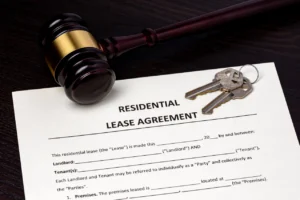
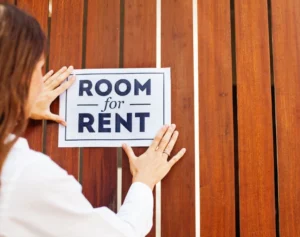


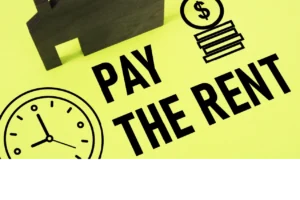
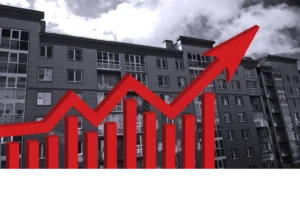
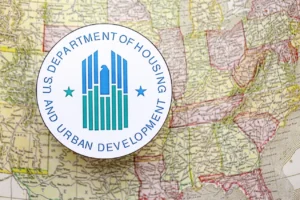





 Accessibility
Accessibility